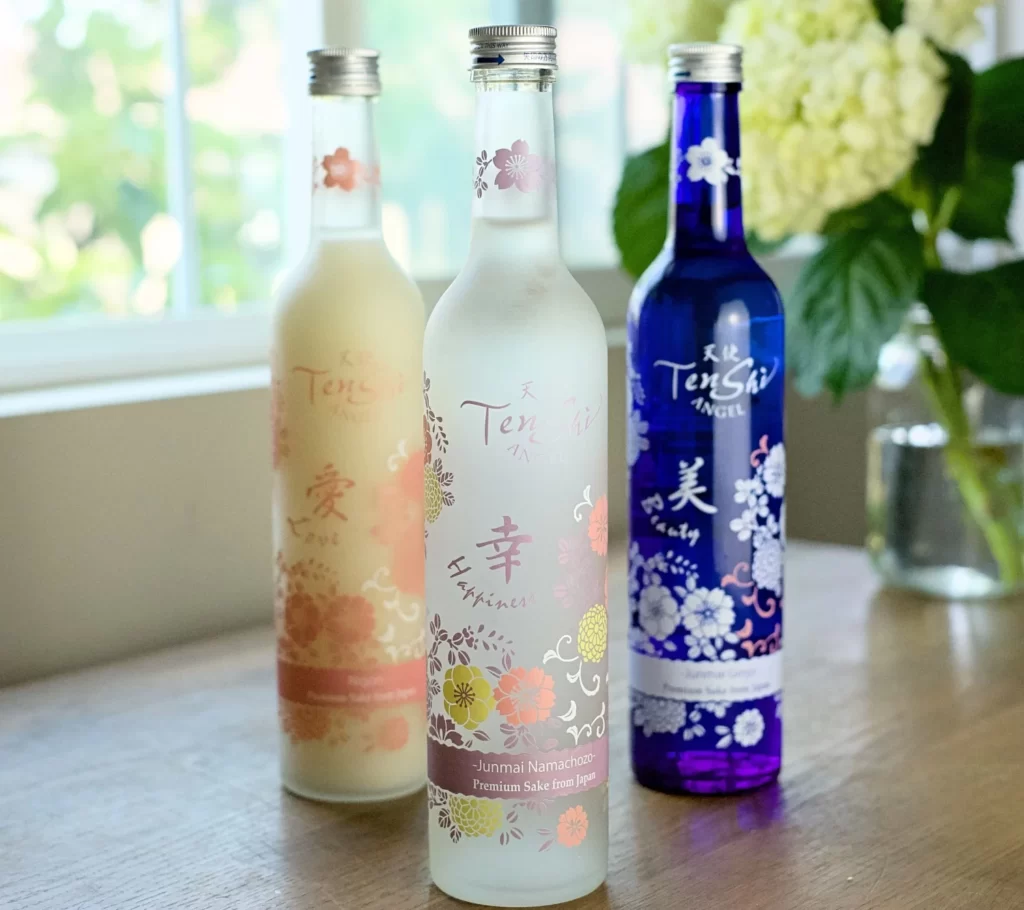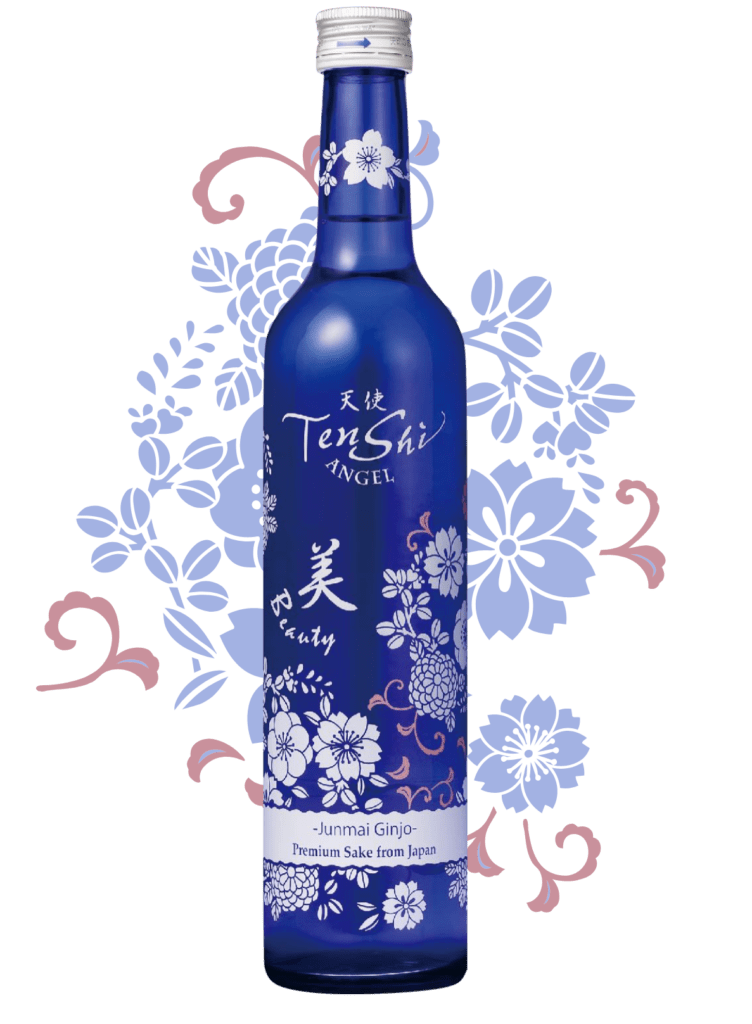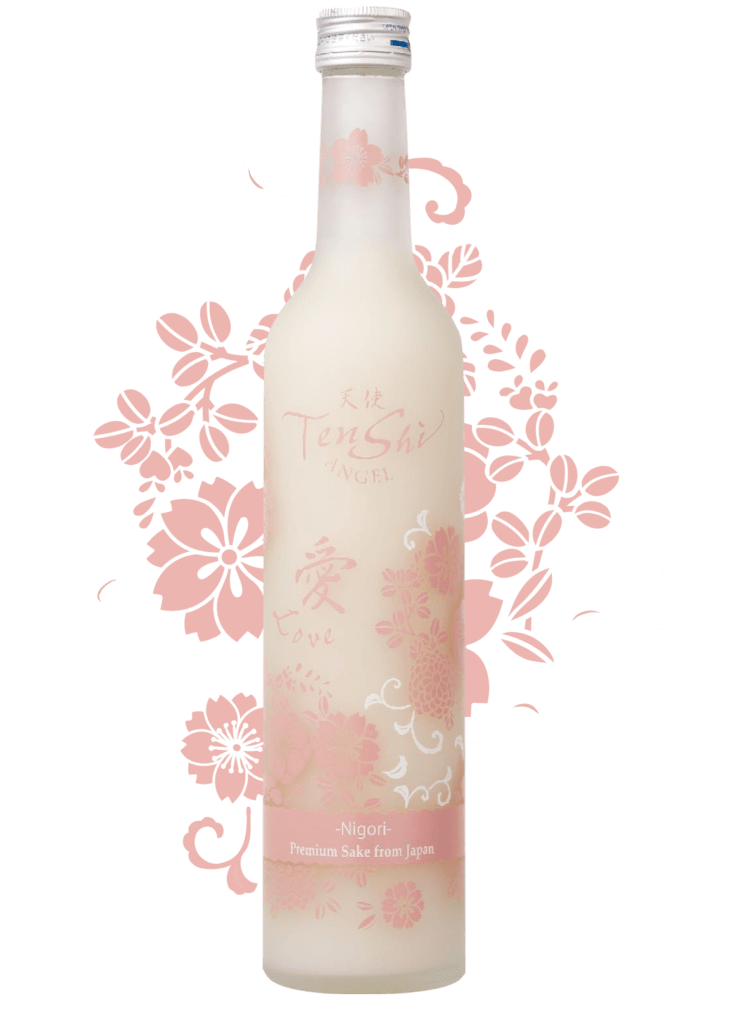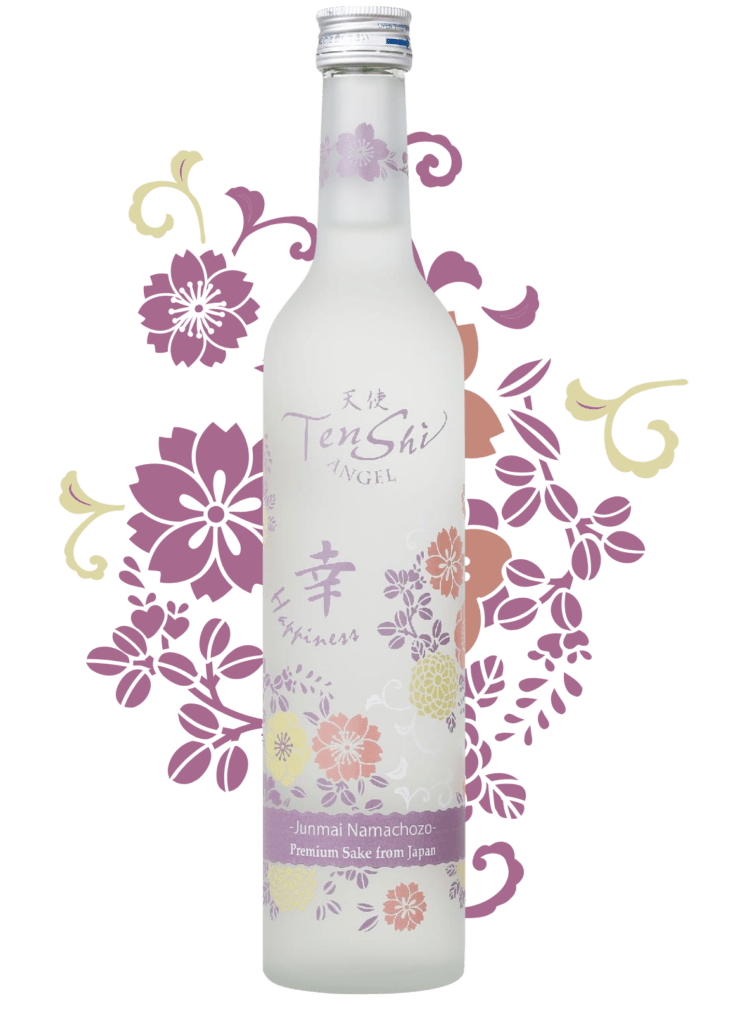Tenshi Sake 101

What is Sake (pronouned sa-keh)?
Sake is a Japanese alcoholic beverage made from just four ingredients polished rice, water, yeast, and koji. It is brewed like a beer, converting the rice starches into sugars, which then ferment into alcohol.
Sake is less acidic than wine and has more umami. It also has no sulfites or tannins.
There are a wide range of styles that can be categorized from fruity to rustic. All of this makes sake wonderful to pair with a large variety of food.
Tenshi Sake’s initial offering is our tasting flight, so that people may discover and appreciate sake, and perhaps find a little Beauty, Love, and Happiness along the way.
Sake Types
Navigating the world of sake can be intimidating and confusing, especially if the bottle labels are full of Japanese kanji characters.
This section aims to help you understand the differences between each Tenshi Sake type and beyond.
There are an incredible amount of sake varieties, mostly based on rice polish and production method.
However, we can start with two classic styles of sake and main subcategories based on rice polish % and production method.
Two Styles of Sake: Junmai and Honjozo
Junmai (純米)
Means “pure rice” and indicates that the sake is made from only rice, water, koji, and yeast. Typically, Junmai sake is made from rice polished to 70%, resulting in full-bodied and richer sake, but there is a wide range of Junmai sakes out there and some are lighter and refined.
Honjozo (本醸造)
The other classic style, which means that the sake has a small amount of “brewer’s alcohol” added. This is added to increase shelf life, lighten the flavor, or create a “smoother” drink. Honjozo sakes are typically light and refreshing, designed for easy drinking.
The next four styles are all variations of the above, but with higher standards of milling.

1. Junmai Ginjo (純米吟醸) - SUPER PREMIUM
A premium Junmai sake that has a 60% rice polish, meaning that 40% of the rice is removed. As more of the bran is stripped away, more of the fruitier essences of rice tend to come out. Junmai Ginjo sakes, like Tenshi Beauty, tend to have bright, fruity, and elegant flavors, but as with all things, there can be a wide range of brews. (There are over 1,500 breweries in Japan after all!)

2. Ginjo (吟醸) - SUPER PREMIUM
A premium Honjozo sake that also has a 60% rice polish. Because it is a Honjozo, it does have brewer’s alcohol added. But, this isn’t to fortify or strengthen the alcohol. Rather, it is added to bring out more of certain flavors or to make them pop more.

3. Junmai Daiginjo (純米大吟醸) - ULTRA PREMIUM
An ultra premium Junmai sake that has at least a 50% rice polish. There are even brands that have a 5% rice polish, meaning they throw 95% of the rice away. Elegant and sophisticated, these sakes are always served chilled.

4. Daiginjo (大吟醸) - ULTRA PREMIUM
An ultra premium Honjozo sake with at least 50% milling on the rice, similar to the Junmai Daiginjo, but also has brewer’s alcohol added. Characterized by softer body and more aroma, these highly prized sakes are always served chilled and often paired with world class sushi and sashimi.
Tenshi Sake Styles
So now that you know the basic styles, what styles can Tenshi products be categorized as?

Tenshi Beauty
is a Junmai Ginjo with premium Yamada Nishiki rice milled down to 60%, resulting in a bright, elegant and fruity sake. Easy to pair with food and easy to sip on its own, Tenshi Beauty is a great introduction to the super premium category of sakes.

Tenshi Love
is a Junmai Nigori, which is a premium style of sake where some of the rice lees are left in the sake. The appearance is cloudy (which is what Nigori means) and the taste tends to be creamier with subtle sweetness. It is a very popular style of sake in both Japan and the U.S.

Tenshi Love
is a Junmai Namachozo, which is a style of premium draft sake. Since sulfites are never added to sake for preservation, most sakes are pasteurized twice for longer shelf life. But Namachozo is pasteurized only once, resulting in a fresh-tasting and full-bodied sake.
